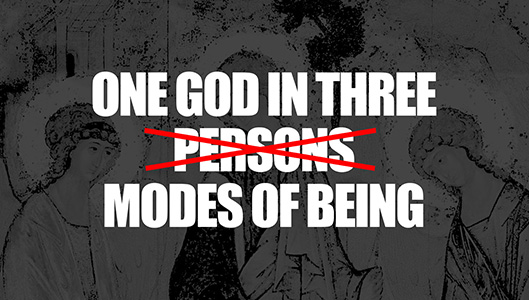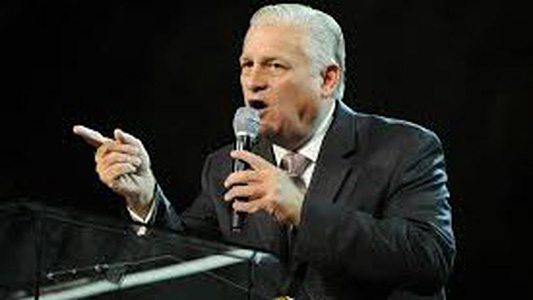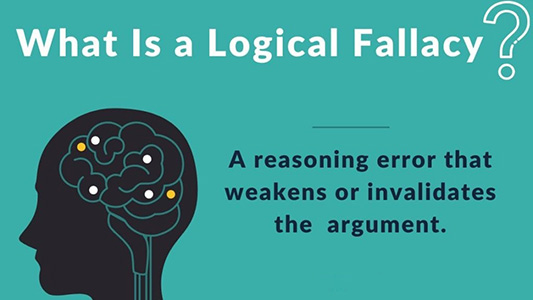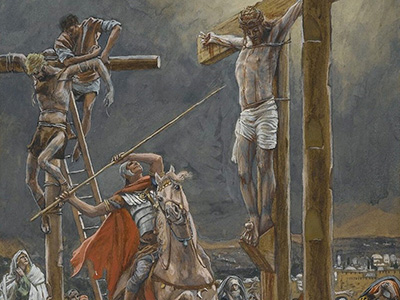The "Jesus-Only" heretical doctrine
![]()
![]()
From the beginning, Modalism was based on the Platonic doctrine that God was an indivisible Monad and could not be divided into three separate Persons. Thus, the Father, the Son, and the Holy Spirit are not to be viewed as three distinct Persons, but as three different manifestations, modes, administrations, disguises, roles, or offices of one and the same Person.
If this is true, then how can the Bible describe the Father speaking to the Son in such places as Matthew 3:17? If there is only one Person in the conversation, is He talking to Himself? The Modalist's typical answer is that the divine nature or the spirit of Jesus is talking to the human nature or the flesh of Jesus. Thus, the dual natures of Christ are talking to each other.
Admittedly, this concept is quite confusing. How can two natures talk to each other? Doesn't a conversation require two persons interacting? How can one nature be the Master and the other nature the servant? How can one nature send the other nature to do a task for Him? The Modalist doctrine of the two natures of Christ talking to each other is a greater mystery than the Trinity.

Jesus is the Father?
Who is this One
Person? The first Modalists believed that the Father was the Person hiding
behind the masks. Thus, if you removed the mask of the Son or the mask
of the Holy Spirit, you would find the "Father only." It was, thus, the
Father who was incarnate in the womb of the Virgin. It was the Father who
lived on earth and died for our sins. It was even the Father who descended
upon Jesus as the Holy Spirit at His baptism. It was the Father who was
poured out on the day of Pentecost. The Son and the Holy Spirit are only
the Father manifesting Himself in different disguises, ways, or modes.
The Father is Jesus?
Instead of saying
that "Jesus is the Father," most modern Modalists reverse the order and
say that "the Father is Jesus." Jesus is the indivisible Person behind
the masks of the Father, the Son, and the Holy Spirit. And, once you remove
those masks, you will see "Jesus only."
In the end,
it does not really matter whether the one indivisible Person is the Father
or Jesus because the Trinity is destroyed either way. The main problem
confronting both kinds of Modalists is that they begin with the a priori
assumption that God is one indivisible Person and cannot
be divided into more than one person. When they reject the Trinity on this
basis, they are simply arguing in a circle.
Modalism Today

The United Pentecostals,
the Church of the Lord Jesus Christ, Church of the Lord Jesus Christ of
the Apostolic Faith, the Pentecostal Assemblies of the World, Church of
Jesus, and over a hundred other "Jesus Only" groups teach that Jesus is
the Person who manifests Himself as the Father, Son, and Holy Spirit. Thus,
they baptize in the name of "Jesus only" instead of in the name of the
Father, the Son, and the Holy Spirit.
In contrast
to the above, there are "Father Only" Pentecostal churches which believe
that it is the Father who manifested Himself as the Son and the Holy Spirit.
They, likewise, reject the Trinitarian formula and baptize in the name
of the "Father Only."
![]()
The Arguments of Modalists
| The arguments advanced by modern Modalists are usually borrowed from the 19th century Unitarians or the Jehovah's Witnesses. Dr. David Bernard is one of the best teachers the United Pentecostals ever produced. We will use his book "The Oneness of God" as an example of the standard Oneness arguments against the Trinity. |  |
Dr. Bernard gives ten basic arguments against the Trinity:
1. Trinitarians are guilty of polytheism in that they actually believe in three gods. This is why he spends a great deal of time proving monotheism, as if it disproved the Trinity.
2. "The terminology of trinitarianism is not biblical." It is very important to Oneness people that the word "Trinity" is not found in the Bible. This is one of Dr. Bernard's "big" arguments. Yet, their own theological words such as "oneness," "modes," "manifestations," etc., are not found in the Bible either.
3. The Trinity was a 4th century invention.
4. "Trinitarianism has its roots in paganism."
5. It was borrowed from Greek philosophy.
6. "It is not logical."
7. "It contradicts many specific verses of Scripture."
8. "No one can understand or explain it rationally, not even those who advocate it."
9. Since the doctrine of the Trinity is said to be a "mystery," this is proof that it is in error.
10. The Trinity doctrine is self-contradictory.
To prove this he gives 26 trick questions, most of which appeared long
ago in Watchtower magazines and books.
![]()
Logical Fallacies

The 26 trick questions posed by Bernard would be a good exercise for a first year logic class when it comes to identifying logical fallacies. Each question is based upon one or more logical errors. For example, he asks:
If Father and Son are co-equal persons, why did Jesus pray to the Father?
This question is based on the categorical fallacy of confusing the ontological Trinity (the nature of the godhead) with the economical Trinity (the individual purposes of the Persons in the godhead) and the pre-existence of Christ with the Incarnation. It is also a straw man argument, for what Trinitarian teaches that the historical, economical relationship of the Father to the Son after the Incarnation is the same as their eternal, ontological relationship before the Incarnation?
Another trick question raised by Bernard is:
If the Son is eternal and existed at creation, who was His mother at that time?
This is what
is called in logic a "nonsense" question. It is as irrational as asking,
"Can you draw a square circle?" An eternal Son by definition cannot
have a mother.
Bernard then
tries to pit the eternal immutability of the pre-Incarnate Son of God against
the temporality of the Messianic kingdom He established when on earth:
If the Son is eternal and immutable (unchangeable), how can the reign of the Son have an end?
This question
is a straw man argument. Trinitarians do not believe that the Messianic
kingdom is eternal. It began with the ministry of Christ on earth
and was established when He was sat down at the right hand of the Father
in heaven and will end when He returns in glory (I Cor. 15:20-27).
This question is also the categorical fallacy of confusing the ontological
Trinity with the economical Trinity.
![]()
Jesus is the Father?
Bernard believes that when the Bible speaks about the Father, the Son and the Holy Spirit, it is actually talking about Jesus. Thus, he had to prove that Jesus is the Father. His first proof that Jesus is the Father is a logical syllogism:
If there is only one God and that God is the Father (Mal. 2:10), and if Jesus is God, then it logically follows that Jesus is the Father.
This syllogism is interesting. If a (there is only one x) is true and b (the Father is x) is true and c (Jesus is x) is true, then Jesus is the Father according to Bernard. But there is not way you can logically deduce that Jesus is the Father from this syllogism. The distributed term is x (God) and not Jesus. Thus, the only thing you can logically deduce from this syllogism is that, if there is only one God and the Father, the Son, and the Holy Spirit are each God, then the Three must be God. This deduction supports the Trinity.
![]()
The Biblical Arguments

Besides
the sophomoric trick questions, Dr. Bernard puts forth a number of Scriptures
which he feels proves that Jesus is the Father and the Holy Spirit. His
basic working presupposition which guides his interpretation of the Bible
is the Platonic doctrine of the indivisibility of God. He both begins and
ends with the assumption that God is absolutely and indivisibly one in
Person.
This is once
again circular reasoning. If you begin by defining God in
such a way that the Trinity is not possible, then it is no big surprise
if you conclude that the Trinity is not possible. You are returning full
circle to where you first began.
The vast majority
of the biblical passages advanced by Dr. Bernard do not prove that Jesus
is the Father. For example, proving that Jesus is God does not prove that
He is the Father. Hence, Bernard needlessly spends many pages proving the
deity of Christ, as if Trinitarians did not accept the doctrine.
![]()
The Name of Jesus Is the Father?
Bernard first
attempts to prove that Jesus is the Father by pointing out that the name
"Father" is one of the names of Jesus according to Isaiah 9:6. He assumes
as an a priori given that if "Father" is a name of Jesus, then this
must mean that Jesus is God the Father. But Bernard's argument is not logically
valid. He is guilty of the fallacy of equivocation because the name "Father"
can have several different meanings. For example, I am called "Father"
by my children. Does this mean that I am God the Father? Of course not.
In the same
way, just because Jesus is called "Father" in Isaiah 9:6, this does not
necessarily mean that He is God the Father. The name "Father" can have
numerous meanings. It is not enough to quote Isaiah 9:6 as a "proof text"
and then go merrily on your way as if you have proven that Jesus is God
the Father.
In its context,
Isaiah 9:6 calls Jesus "Father" in the sense of His being the Origin or
Source of eternal life, i.e., salvation. It is the Messiah's work of redemption
that is in view.
Bernard then
sets forth another passage in which he thinks that "Father" is a name of
Jesus.

John 5:43
"I have come in My Father's name, and you do not receive Me; if another shall come in his own name, you will receive him."
Dr. Bernard believes that in this verse "Father" is the name of Jesus:
"It is important to note that the name of the Father is Jesus, for this name fully reveals and expresses the Father. In John 5:43, Jesus said, 'I am come in my Father's name.'"
If the phrase "coming in the name of" means that you are the person in whose name you are coming, then we are all in big trouble! David said to the Philistines:
"You come to me with a sword, a spear, and a javelin, but I come to you in the name of [Yahweh] of hosts, the God of the armies of Israel, whom you have taunted." (I Sam. 17:45).
If Bernard's
reasoning is correct, then David's name is "Yahweh of Hosts" and "the God
of the armies of Israel." Of course, such an idea is ridiculous. The phrase
"in the name of" means "by the authority of." Jesus did things by the authority
of the Father.
Jesus Is the Father?
One of the favorite passages of Modalists down through the ages is Zechariah 12:10:
"And I will pour out on the house of David and on the inhabitants of Jerusalem, the Spirit of grace and of supplication, so that they will look on Me whom they have pierced; and they will mourn for Him, as one mourns for an only son, and they will weep bitterly over Him, like the bitter weeping over a first-born."
The Oneness argument is quite simple. Since it is Jesus who died on the cross and the Father is pictured in Zechariah 12:10 as the One who died on the cross, then Jesus is the Father.
Modern [Modalists], such as the United Pentecostals, have interpreted Zechariah 12:10 to mean that the Father is Jesus who is pierced. But this is not how the new Testament interprets it. In John's Gospel, we find that Zechariah 12:10 was fulfilled when the Son of God was pierced by a spear while He hung on the cross (John 19:32-34; 36-37).
The apostle John clearly viewed Zechariah 12:10 as being fulfilled when the soldier pierced the crucified body of the Son on the cross. The Messiah is the One who is pierced as well as the Son who is mourned. Zechariah 12:10, therefore, does not refer to all three Persons of the Trinity, but only to the Son and to the Spirit. This interpretation is the only one which does justice to the other messianic prophecies, such as Zechariah 13:7, which also refers to the Messiah (Matt. 26:31).

We must remember
that the name "Jesus" was a common, ordinary, everyday name like John or
Peter. In the first century, many men bore the name "Jesus." The average
Christian does not know this because he or she is ignorant of the original
languages and the Old Testament usage of the name "Joshua."
![]()
Final Arguments Against Modalism
Modalism contradicts the clear teaching of such passages as Isaiah 48:16:
"And now the Lord GOD has sent Me, and His Spirit."
In our exegesis of this passage, we demonstrate that in the context three Persons are in view:
The Lord God = the Father (the Sender)
Me = the Son (Sent by the Father)
His Spirit = the Holy Spirit (Sent by the Father)
Bernard's attempt
to avoid this fact is not very convincing. The same holds true for his
treatment of Daniel 7:9-28, where the Father and the Son are seen as two
distinct Persons or Zechariah 13:7, where the Messiah is called the "Fellow
of Yahweh."
In the Old Testament,
the pre-existence of the Son is clearly stated in Proverbs 30:4. It is
not a prophecy as Bernard pretends. The Father talks to the Son is such
passages as Psalms 45:6; 110:1-2; 102:25.
In the New Testament, Modalists consistently violate the rules of Greek grammar and syntax. The Granville Sharp rule reveals that the Father, the Son, and the Holy Spirit are grammatically viewed as separate Persons in baptism (Matt. 28:19), the benedictions (i.e., II Cor. 13:14) and other passages, such as Romans 15:30.
In John 8:13, the Jews challenged Jesus:
The Pharisees therefore said to Him, "You are bearing witness of Yourself; Your witness is not true."
Jesus responded by stating that according to Deuteronomy 19:15, the testimony of two or three witnesses is sufficient to establish truth. In this case, He was one witness and the Father was the second witness:
"My judgement is true; for I am not alone in it, but I and He who sent Me. Even in your law it has been written, that the testimony of two men is true. I am He who bears witness of Myself, and the Father who sent Me bears witness of Me" (John 8:16-18).
| This passage is definitive. Jesus states that He is not the only witness, but the Father is a second witness who can bear witness to the truth. If Modalism were true, then Jesus was a liar, for there was no second witness because He and the Father were one and the same person. If the personhood of the Father is denied, then the witness of Jesus is invalidated. |  |
Modalism has never been able to answer such questions as: How can Jesus be seated "at the right hand of God" the Father if He is the Father? How can Jesus be both the Sender and the Sent; the One who prays and the One to whom the prayer is directed; the sacrifice and the One to whom the sacrifice is given?, etc.
If Modalism were true, then we should not expect to find plural pronouns such as we, our, etc., used in reference to the Father, Son and Holy Spirit. But this is exactly what we find in John 14:23-26:
"Jesus answered and said to him, 'If anyone loves Me, he will keep My word; and My Father will love him, and We will come to him, and make Our abode with him. He who does not love Me does not keep My words; and the word which you hear is not Mine, but the Father's who sent Me. These things I have spoken to you, while abiding with you. But the Helper, the Holy Spirit, whom the Father will send in My name, He will teach you all things, and bring to your remembrance all that I said to you.'"
Jesus states the word He spoke was not His word, but the Father's. Thus, He cannot be the Father.
Notice also, that the Holy Spirit is called the Comforter or Helper. In John 14:16, Jesus says:
"And I will ask the Father, and He will give you another Helper, that he may be with you forever."
The translated "another" [is a] little Greek word sufficient, in and of itself, to refute the idea that Jesus is the Holy Spirit. Obviously, if the Spirit is "another" Helper, He cannot be the same Helper. There is simply no rational way to avoid the truth that Jesus cannot be the Holy Spirit in this passage.
Lastly, like
the Greek philosophers of old, the Modalists end up with an unknowable
God. All we find in Scripture is a record of the different masks and disguises
donned by this unknowable God.
Since Bernard
describes the God behind the masks as "invisible" and then goes on to describe
Jesus of Nazareth as just one visible manifestation of this invisible God,
then Jesus per se is not the invisible God. He is only a mask God
put on at the Incarnation.
What God then
lies behind all the roles, masks, disguises, titles, modes, and manifestations?
No one knows.
Conclusion
The Trinity is
reduced to a mere charade in which the Father, the Son, and the Holy Spirit
are only masks worn by an unknowable god. Such a deity is not worthy of
our worship, praise or love. It is a "Christianized" version of the unknowable,
indivisible Monad of Greek philosophy and is intrinsically inferior to
the Holy Trinity.
[Taken from "The
Trinity" by Dr. Robert Morey]